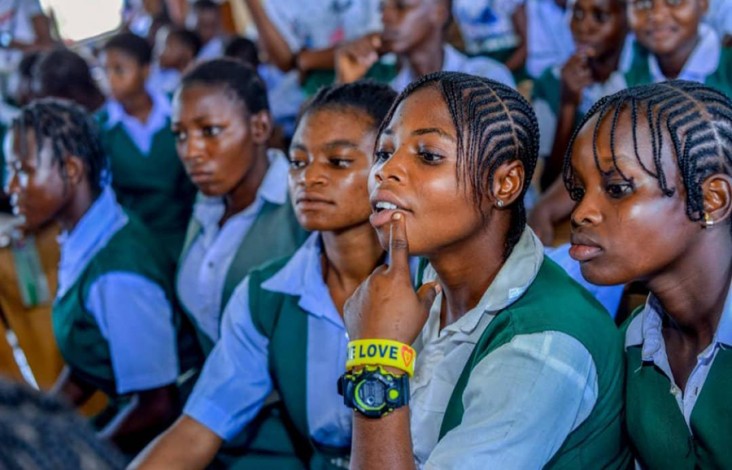Press Release Shim
Speeches Shim

‘Co-creation’ process included input from youth themselves
For Immediate Release
Abuja – The U.S. Agency for International Development (USAID) has designed a new activity aimed at improving the health and well-being of poor, urban adolescents using a new, inclusive “co-creation” method to better understand the challenges young people face in leading healthy and productive lives.
The result was the five-year, $15 million award of the Youth-powered Ecosystem to Advance Urban Adolescent Health and Well-being activity to DAI Global, which will lead a group of specialized local partners to establish and strengthen a network of “youth hubs” in the state capitals of Lagos and Kano.
The hubs will provide two million adolescent girls and boys with safe spaces where they will acquire skills to lead healthier, more productive lives through counseling on reproductive health, practical information for workforce development, and fun activities and sports that encourage self-esteem and team building.
“Recognizing the importance of developing activities together with those who will be impacted by it, USAID has embarked on a novel design approach centered on adolescents and one that included stakeholders from multiple disciplines, including the private sector,” said USAID Deputy Health Office Director Minal Amin, who coordinated the effort. “The Nigerian organizations that participated in the process will be pivotal in reaching vulnerable youth with life-saving information and services and helping adolescents reach their fullest potential.”
The youth-centric co-creation model engaged groups of young people to better understand the challenges they face, and convened a wide array of government, development partners, donors, and the private sector to formulate the activity’s strategic focus and methodology.
In late 2019, USAID assembled youth and other stakeholders to identify issues that most afflicted adolescents living in underserved urban areas, such as a lack of vocational and livelihood opportunities, substance abuse, domestic and community violence. This group also crafted innovative solutions for tackling these most pressing barriers to healthy living.
By establishing and strengthening a series of interconnected “youth hubs” in the two megacities, the activity will empower 15-to19-year-olds with gender- and age appropriate health and life skills, reproductive health awareness, access to reproductive health information and services, and improvement of gender equality.
In the teen-friendly context of sports, arts, and other group-centered activities, a cadre of youth coaches will deepen understanding of social issues, shift attitudes, and spur behavior change among the hub participants. Further engagement with parents, guardians and community leaders will help youth take control of their health and futures through job training, apprenticeships, and placements.
“In line with the Agency’s Positive Youth Development policy, USAID has given the youth of Nigeria a voice into a project meant for them,” said Mission Director Stephen M. Haykin. “This activity responds to the demands of today’s young people that they must be involved in forging their own futures.”
For additional information, please contact abujadoc@usaid.gov

Comment
Make a general inquiry or suggest an improvement.